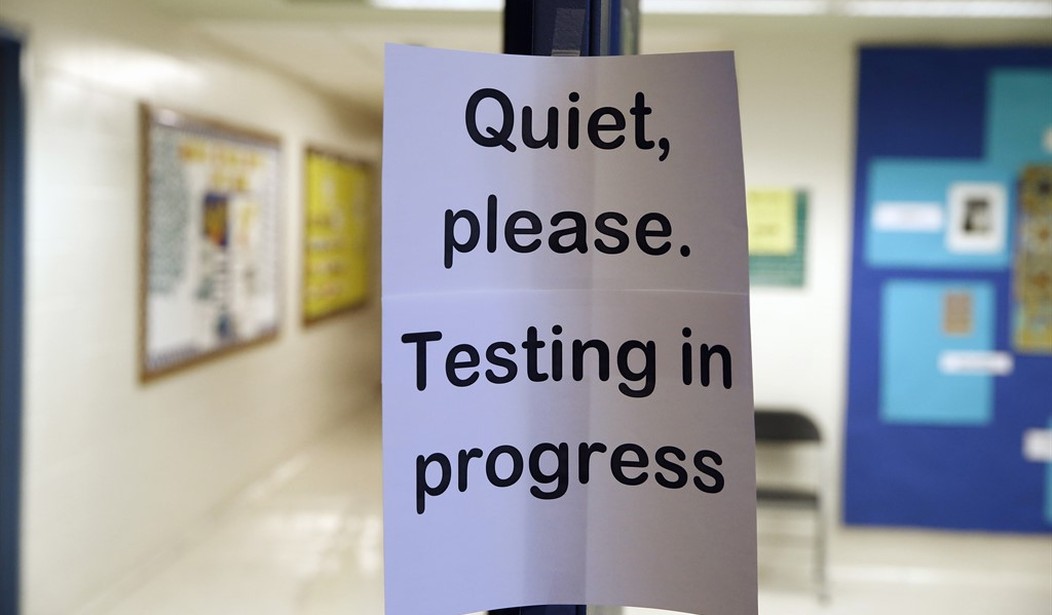In recent months, Ivy League institutions such as Harvard and the University of Pennsylvania have been primarily distinguished for plagiarism scandals, failing to address antisemitism and other illiberalism. They have also been rebuked for admissions policies emphasizing applicants’ race rather than their qualifications.
The Supreme Court found in its decision on Students for Fair Admissions Inc. v. President & Fellows of Harvard College that “The admissions programs at Harvard College and the University of North Carolina violate the equal protection clause of the 14th Amendment.” Some universities are taking a different tack. Two weeks ago, Dartmouth reinstated SAT-testing requirements for admissions. Subsequently, MIT, Georgetown, and Yale followed suit, undoing a pandemic-era practice that removed standardized testing requirements for applicants to undergraduate programs in the name of “equity.”
Contrary to the arguments of anti-test advocates, standardized testing requirements level the playing field, providing marginalized applicants with a rare opportunity to demonstrate their capabilities. Citing recent research from Opportunity Insights, the New York Times concluded that standardized test scores are much more predictive of university performance than high school GPAs. Indeed, while admissions essays can be written by expensive tutors, high school grades inflated at elite prep schools, and extracurriculars exaggerated by consultants, while not perfect, the roughly three-hour ACT and SAT exams are the closest thing we have to a genuine assessment of applicants' abilities and their likelihood of being able to do college-level work.
With the help of tutors, wealthy and privileged high schoolers still have the upper hand. However, these exams still afford marginalized students the best opportunity to evidence their intellect under the fairest conditions available. As such, applications devoid of standardized testing metrics exaggerate the advantages of the wealthy and stifle the prowess of the underprivileged. In short, the schools that reinstated standardized testing requirements ensured a more equitable and merit-based admissions process.
While Dartmouth and others are moving in the right direction—all four-year schools ought to reinstate testing requirements—universities must continue prioritizing merit-based admissions, not only with the ACT and SAT but through other tests and methods. However, the fact that test requirements were ever removed and that many institutions have yet to reinstate them elucidates a pervasive ideology hostile to merit that possesses American higher education. Anti-test advocates argue that standardized tests are racist and disadvantage students of color, but the opposite is true.
Moreover, until last year’s overturning of affirmative action in SFFA v. UNC and Harvard, universities across the country routinely discriminated against Asian applicants, holding them to a different standard than their white, black, and Latino counterparts. For years, the goal of admissions officers has not been to select the most qualified and meritorious candidates but instead to craft an incoming class with a substantial focus on applicants’ demographics rather than what they know and can do.
Thus, schools like Dartmouth ought to capitalize upon the momentum of testing reinstatement to confront race-based ideology and cement merit-based admissions. One clear step forward is the concept of testing choice. While SAT and ACT scores have been the standard for decades, the existing testing duopoly may be failing to turn up some meritorious candidates, and we should not miss opportunities for innovation.
Fortunately, other exams, including the Classical Learning Test, provide universities with another way to identify deserving applicants from genuinely diverse backgrounds based on a different—and not necessarily better or worse—conception of merit than the ACT or SAT. Last year, Florida became the first state to require its public universities to accept the test, and others may follow. By offering testing choices, universities can simultaneously encourage more rigorous testing and expand their applicant pool in a time of declining enrollment. Additionally, competition with other exams will incentivize the ACT and SAT to enhance the integrity of their testing regimes.
Dartmouth deserves praise for its decision to buck race-based ideology in admissions by reinstating standardized testing requirements. Yet merit-based admissions continue to face strong opposition. Some activists and politicians remain wedded to their belief that focusing on “merit” will adversely impact those from disadvantaged backgrounds. Elite universities and less selective ones must be vigilant, rejecting race-based schemes and working creatively to foster a merit-based admissions environment.









Join the conversation as a VIP Member